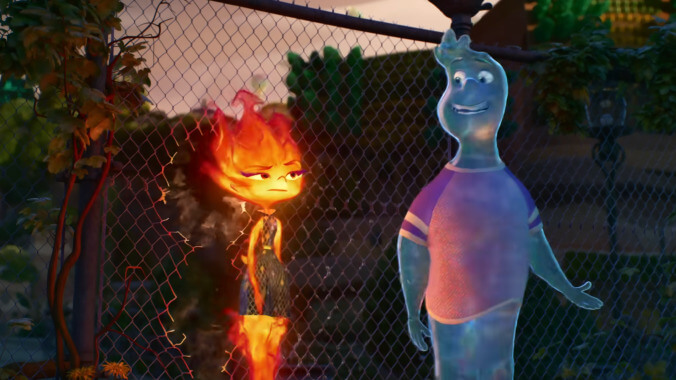Pixar, struggling for a new strategy, predictably turns to reboots, sequels, and "mass appeal"
Pixar has had a tough few years, so now its looking to mine its IP for easy success

Somehow, no matter what existential questions the entertainment industry poses, the answer they provide themselves always ends up being “Established IP!” Pixar, the legendary, award-winning animation studio within the Disney corporation, used to be known primarily for its original storytelling, though sequels have always been in the mix. In recent years, Pixar has struggled to gain the traction that its original films used to manage effortlessly. And so, inevitably, the studio seems to be circling back on its sequels.
Of course this strategy isn’t a surprise—beyond being Hollywood’s current modus operandi, Disney CEO Bob Iger has been championing the company’s sequels across the board. But Pixar president Jim Morris is setting a specific goal, in which the studio releases three movies every two years, “with every other title a sequel or spinoff and the rest standalone concepts or potential seeds for new franchises,” per a new piece in Bloomberg. The studio is also eyeing possible “reboots” for movies like Finding Nemo and The Incredibles.
It’s unclear whether “reboot” in this context means actually starting the story or just bringing back the characters or the universe of those particular films. Lindsay Collins, Pixar’s senior vice president of development, admitted to the outlet that even her own son viewed a possible Incredibles 3 as a “money grab.” But the studio still sees potential in its coveted IP. Of a new Finding Nemo movie, Pixar Chief Creative Officer Pete Docter mused, “Where else have we not gone in the ocean? The ocean’s a big place. I think there’s a lot of opportunity there. We’re kind of fishing around—ha-ha.”
For couch critics watching this strategy form from the outside, there’s a despairing sense that the entertainment industry learned all the wrong lessons from the pandemic and the subsequent unsteady box office. Pixar had a string of straight-to-streaming originals that, it acknowledges in the Bloomberg piece, diminished the studio’s box office value. But the decision makers there don’t seem to have gotten the message from its latest theatrical releases, either. That is: Lightyear didn’t work at all as a marketed Toy Story spin-off, and original Elemental actually had legs in cinemas worldwide after a shaky debut. One might look at those examples and extrapolate that interconnected stories are a bigger risk (sequels and spin-offs come with pressure to live up to the original), while originals just need some time and nurturing to get off the ground.
Instead, Pixar is pivoting to “mass appeal,” specifically turning its creatives away from the ethos of previous projects (Luca, Turning Red, and Elemental) that were more autobiographical and personal for the filmmakers. “I don’t think we can ever let ourselves off the hook of making sure that we deliver the best possible and most relatable films,” Docter told Bloomberg.
This strategy will be put to the test with this month’s Inside Out 2. It’s a sequel to an extremely popular Pixar movie, so the studio already knows it has “mass appeal.” Yet it should be noted that Inside Out was personal for its director (Docter), who based the story on his experience raising his tween daughter, and the sequel is personal for its director Kelsey Mann, who based the story on raising his teen daughter. It’s also worth noting that in this case, the story that has “mass appeal” is the one about the emotions of a white American girl, in contrast to some of the content of Pixar’s previous releases. (Turning Red’s protagonist was Chinese-Canadian; Lightyear featured the studio’s first same-sex kiss; Elemental was based on director Peter Sohn’s immigrant family.)
All this to say, Pixar’s big pivot is pretty unremarkable in the grand scheme of the movie business. (See: the 175 workers that just got laid off at the company.) Toothless, homogenous, focused-grouped blockbusters tend to be the Hollywood norm. It’s a disappointingly bland decision for Pixar to keep digging up the old IP (Toy Story 5, coming 2026!) and avoiding any distinct, unique perspectives in its originals. Maybe it’ll get cinema-shy audiences to return to theaters after the pandemic. But it’s boring, and it doesn’t sound like the best version of storytelling.